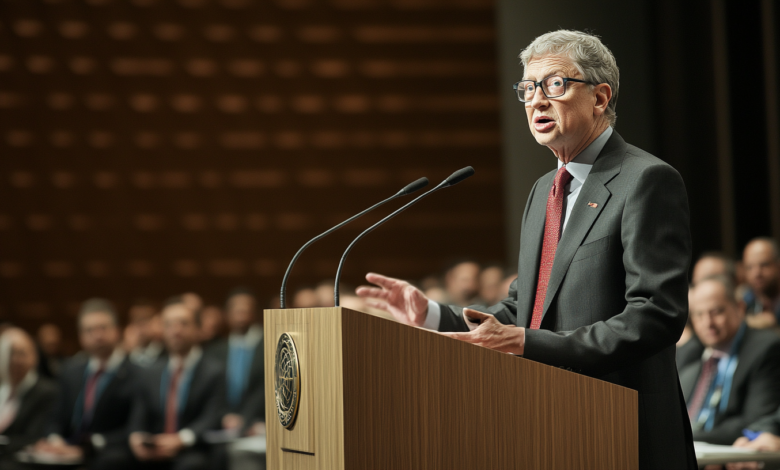Who is the Most Powerful Doctor in the World?

Introduction to the Concept of Power in Medicine
Who is the Most Powerful Doctor in the World concept of power in medicine is multifaceted, encompassing various dimensions that influence both clinical practice and healthcare systems. In this context, power can be understood as the capacity of medical professionals, specifically doctors, to effect change and shape health outcomes. The inquiry into who is the most powerful doctor in the world invariably invites a deeper exploration of what constitutes power within the medical field.
One critical form of power is medical knowledge, which serves as the foundation of a doctor’s authority. Physicians, through rigorous education and training, acquire a wealth of information that enables them to diagnose conditions, recommend treatments, and make life-altering decisions for their patients. This expertise instills trust in patients, as they often rely on the judgment of a doctor for their health. Thus, the relationship between doctor and patient is built on a trust that is critical to effective healthcare delivery.
Aside from individual patient interactions, the influence of doctors extends into broader healthcare policies and systems. Many physicians wield significant clout in shaping health regulations, advocating for social reforms, and participating in governance. Their voices can drive changes in public health policies that affect entire populations, highlighting a different dimension of their power.
Moreover, the ability to foster change in health systems places certain doctors in positions of considerable influence. This capability is enhanced by collaboration with other health professionals and stakeholders who share the same vision for improving healthcare. In this broader lens, identifying who is the most powerful doctor in the world involves examining not only their clinical prowess but also their capacity for advocacy and leadership within the healthcare landscape.
Historical Figures in Medicine
The realm of medicine has been shaped by numerous influential figures throughout history, each contributing to the evolution of healthcare in significant ways. One of the earliest and most notable figures is Hippocrates, often referred to as the “Father of Medicine.” His principles laid the groundwork for medical ethics and practice, notably the Hippocratic Oath, which continues to resonate in the medical community today. His emphasis on observation and systematic study marked the transition from superstition to a more scientific approach to medicine, establishing a foundation that modern practitioners build upon.
Another iconic figure is Florence Nightingale, who revolutionized nursing and healthcare systems through her pioneering work during the Crimean War. Nightingale’s advocacy for sanitary living conditions drastically reduced the mortality rate of soldiers and highlighted the importance of hygiene in medicine. Her establishment of nursing as a respected profession and her innovative approach to patient care underscore how powerful individuals have the capacity to transform healthcare practices. Nightingale’s legacy has persisted, influencing nursing education and hospital management worldwide.
Furthermore, contemporary figures such as Paul Farmer exemplify the ongoing impact of powerful individuals in medicine. As a co-founder of Partners In Health, Farmer has worked tirelessly to provide healthcare to impoverished populations globally. His model of care, integrating social justice into healthcare delivery, showcases the ongoing relevance of powerful medical figures. By acknowledging historical medical pioneers like Hippocrates, Florence Nightingale, and Paul Farmer, we recognize their profound influence on both present and future healthcare practices. These historical figures remind us that the question of who is the most powerful doctor in the world extends beyond the individual to encompass their enduring contributions to medical knowledge and ethics.
Modern Influencers: Who Holds the Most Power Today?
In the landscape of modern medicine, the definition of power extends beyond mere titles and accolades. Today, the most powerful doctors in the world are often those who wield significant influence in research, public health, and health policy. Prominent figures include leading researchers, renowned public health officials, and administrators from major global health organizations, each contributing distinctively to advancing medical practices.
Individuals such as Dr. Anthony Fauci, who played a pivotal role in managing the COVID-19 pandemic in the United States, exemplify how public health officials can impact global health. His decisions on infectious disease control, funding, and scientific research have made him a household name and a central figure in shaping health policies worldwide. Similarly, Dr. Gro Harlem Brundtland, former Director-General of the World Health Organization (WHO), has influenced global health initiatives significantly. Her dedication towards sustainable development and health equity has set a precedent for effective health governance.
Moreover, leading researchers such as Dr. Paul Farmer, co-founder of Partners In Health, have altered the paradigm of how healthcare is delivered in resource-poor countries. His commitment to providing quality healthcare and addressing social injustices reinforces the notion that the power of a doctor can manifest in transformative healthcare models. The decisions made by such individuals do not just impact their immediate communities; they resonate globally, effecting systemic changes that influence millions.
The landscape of powerful medical influencers continues to evolve, with advancements in technology and access to information. As these leaders contribute to scientific advancements and shape health policies, their ability to leverage their expertise and communication skills makes them some of the most powerful doctors in the world. Their influence ultimately drives progress in healthcare and inspires future generations of medical professionals.
Criteria for Measuring Influence and Power in Medicine
Determining who is the most powerful doctor in the world requires a multifaceted approach that encompasses several criteria. Each criterion is essential in assessing the influence and authority of a physician within the broader medical landscape. One of the primary factors to consider is the extent of innovation in medical research. Doctors who lead groundbreaking research initiatives often set new standards in treatment protocols and therapies. Their work can result in the discovery of life-saving medications or innovative surgical procedures that fundamentally alter patient outcomes. This innovative capacity significantly raises their profile in the medical community.
Another important criteria is involvement in health policy. Physicians who are actively engaged in shaping health policy tend to have substantial influence. Their insights into clinical practices can lead to changes at the national or global level, directly impacting healthcare accessibility, quality, and ethical standards. By advocating for evidence-based policies, these doctors can ensure that medical resources are allocated effectively, thus shaping healthcare systems and directly affecting patient care.
Leadership roles within professional organizations or academic institutions also contribute to measuring a doctor’s power. Individuals in these positions not only guide current practices but also mentor the next generation of medical professionals. Their ability to lead teams and influence peers is indicative of their standing within the medical community. Additionally, a powerful doctor often speaks at conferences or contributes to influential medical journals, providing them with a platform to disseminate knowledge and advocate for essential advancements in medicine.
Lastly, the impact on patient care cannot be overstated. Doctors who prioritize patient outcomes and demonstrate the efficacy of their methods can cultivate a strong reputation. When evaluating who might be considered the most powerful doctor in the world, it is crucial to analyze how their actions resonate within the healthcare arena, ensuring that patient welfare remains the focal point.
The Role of Medical Institutions and Organizations
In the healthcare sector, the influence of medical institutions and organizations is pivotal in shaping power dynamics. Bodies such as the World Health Organization (WHO) and the Centers for Disease Control and Prevention (CDC) play a significant role not only in global health governance but also in determining who is considered among the most powerful doctors in the world. These institutions establish guidelines, protocols, and best practices which, when adopted, can elevate the status of affiliated practitioners.
Organizations like the WHO coordinate international health responses and provide frameworks for effective medical practice, thus impacting the careers of numerous healthcare professionals. For instance, doctors who work closely with these organizations often gain recognition and credibility, positioning themselves as influential figures in the medical community. Similarly, the CDC’s role in disease prevention and health promotion allows certain experts to position themselves as key authorities in addressing public health challenges, further attesting to how institutional affiliation can enhance an individual’s power in the field.
Moreover, major medical universities contribute significantly to the development of influential doctors. These institutions are responsible for training the next generation of healthcare professionals, and the research conducted within their walls often sets the standard for medical practice. Graduates from prestigious medical schools frequently ascend to powerful positions, shaping health policies on a global scale. In this way, understanding the network of medical institutions can help define who is regarded as the most powerful doctor in the world, as these affiliations signal authority and expertise.
Overall, the intricate relationship between individual practitioners and major medical organizations underscores how power in medicine is not merely a function of personal skill but is also deeply embedded in institutional support and recognition.
Cultural and Ethical Dimensions of Medical Power
The concept of power in medicine is not merely a function of the abilities or expertise of a doctor; it is deeply intertwined with cultural norms and ethical considerations that shape healthcare systems globally. Understanding who is the most powerful doctor in the world requires a comprehensive examination of how different cultures view medical authority and the access patients have to healthcare services. In various societies, the perception of medical power can significantly influence the interactions between healthcare providers and patients.
In many cultures, physicians are revered figures, often viewed as bearers of knowledge and authority in health matters. However, this reverence can lead to unequal power dynamics within the doctor-patient relationship, with patients feeling disempowered to voice their concerns or make informed choices regarding their treatments. Consequently, it is critical to recognize the ethical implications that arise from such imbalances. The responsibility of a powerful doctor extends beyond clinical skills; it encompasses a duty to engage patients through informed consent, mutual respect, and equitable treatment.
Moreover, issues such as accessibility to healthcare reveal significant disparities that challenge the notion of power. In regions where healthcare resources are scarce or inequitably distributed, the most powerful doctor may not be the one with the most accolades, but rather one who advocates for accessibility and health equity. Addressing these disparities requires a commitment from medical professionals to recognize their power and utilize it to promote ethical practices within their communities. The dialogue around who is considered the most powerful doctor in the world must therefore include a critical examination of how cultural and ethical dimensions shape the accessibility and quality of care patients receive.
Case Studies: Powerful Doctors in Action
In the ever-evolving landscape of healthcare, several doctors have risen to prominence through their extraordinary contributions and groundbreaking innovations. These individuals embody the essence of what it means to be seen as some of the most powerful doctors in the world, impacting both patient outcomes and the medical community at large. One notable figure is Dr. Paul Farmer, co-founder of Partners In Health, who advocated for equitable healthcare access in impoverished regions. Through his tireless efforts, Farmer has changed the lives of countless individuals suffering from infectious diseases, highlighting the incredible influence that a dedicated physician can wield beyond conventional clinical settings.
Another remarkable example is Dr. Atul Gawande, an esteemed surgeon and author, who has made significant strides in improving patient safety and healthcare efficiency. As a prominent voice in medical reform, his writings have galvanized discussions on the importance of effective communication and accessibility in healthcare. Dr. Gawande’s work exemplifies how a powerful doctor can drive systemic change and inspire future generations of medical professionals to prioritize ethical healthcare delivery.
Additionally, we can look at Dr. Tedros Adhanom Ghebreyesus, the Director-General of the World Health Organization (WHO). His leadership during global crises, such as the COVID-19 pandemic, underscores how powerful doctors wield their authority to advocate for public health initiatives worldwide. Dr. Tedros has emphasized the need for vaccination, health equity, and collaborative global responses, amplifying the role of healthcare professionals on an international stage.
In reflecting on these case studies, it is clear that being recognized as a powerful doctor today involves not only clinical expertise but also a commitment to advocacy, innovation, and holistic healthcare solutions. These physicians demonstrate that the influence of a healthcare professional can reach far beyond the walls of a hospital, ultimately shaping the future of medicine for the better.
The Future of Power in Medicine
As we navigate the 21st century, the landscape of the medical profession is undergoing significant transformation due to advancements in technology. One of the most critical developments influencing this change is the rise of telemedicine. This innovative approach allows healthcare providers to deliver care remotely, thus broadening their reach and creating new opportunities for patient interaction. Consequently, the question arises: who is the most powerful doctor in the world? Will it be those who adapt quickly and effectively to these evolving technologies?
Moreover, the integration of artificial intelligence (AI) in healthcare holds considerable implications for medical authority. AI can analyze vast amounts of data with unprecedented speed and accuracy, leading to improved diagnostics and treatment options. As AI becomes more integrated into clinical practice, the role of the physician may shift from being the primary decision-maker to one who collaborates with intelligent systems. This evolution could redefine what it means to be a powerful doctor in today’s society.
Additionally, the shift in patient engagement plays a pivotal role in reshaping power dynamics within medicine. With access to vast information online, patients are more informed than ever before. This empowerment can lead to a more collaborative approach to healthcare, where patients and doctors work together in decision-making processes. In this new dynamic, physicians must not only provide medical expertise but also navigate and validate the information patients bring to the table.
As these technological advancements and shifts in patient behavior continue, the hierarchy within healthcare may experience a seismic shift. The most powerful doctors in the future may not solely be those with traditionally recognized expertise, but rather those who can leverage these advancements to enhance patient care and foster collaborative relationships. Therefore, the evolving nature of medicine compels us to continually reevaluate what it means to hold power in this vital profession.
Conclusion: Defining the Most Powerful Doctor
The inquiry into who is the most powerful doctor in the world is inherently complex and multifaceted. Throughout this discussion, we have explored various dimensions of power in the medical field, emphasizing the importance of influence, expertise, and access to resources. Rather than pinpointing a singular individual, it has become evident that power in medicine is distributed among a cadre of exceptionally influential figures. From pioneering researchers who develop groundbreaking treatments to prominent leaders who shape health policies on global stages, each plays a pivotal role in advancing healthcare.
Additionally, the impact of doctors often transcends their immediate clinical practices, extending into realms like public health, education, and policy-making. For instance, physicians involved in reforming healthcare systems or those leading initiatives to combat pandemics exhibit a form of power that is societal and transformative. Such contributions highlight that medical authority cannot be solely quantified by professional titles or accolades but is also measured by the broader impact on communities and populations.
The exploration of who is the most powerful doctor also raises important discussions about the responsibilities that come with such influence. It is critical for those in positions of power within the medical community to advocate for ethical practices and to address significant healthcare disparities. In light of these considerations, it becomes apparent that the dialogue around medical power is not only about individual achievement but also about a collective commitment to enhancing public health outcomes.
In conclusion, the question of who holds the title of the most powerful doctor does not yield a straightforward answer. Instead, it emphasizes the interconnectedness of various influential figures within the medical landscape, highlighting the necessity for collaboration and shared responsibility to foster a healthier world for all.
You May Also Read This Usamaketime.


